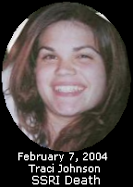Editorial: Psychiatry's bible: Its time has passed
Since this article was first posted, the American Psychiatric Association has announced that the publication of DSM-V will be delayed until May 2013. "Extending the timeline will allow more time for public review, field trials and revisions," says APA president Alan Schatzberg.
When doctors disagree with each other, they usually couch their criticisms in careful, measured language. In the past few months, however, open conflict has broken out among the upper echelons of US psychiatry. The focus of discord is a volume called the Diagnostic and Statistical Manual of Mental Disorders, orDSM, which psychiatrists turn to when diagnosing the distressed individuals who turn up at their offices seeking help. Regularly referred to as the profession's bible, the DSM is in the midst of a major rewrite, and feelings are running high.
Two eminent retired psychiatrists are warning that the revision process is fatally flawed. They say the new manual, to be known as DSM-V, will extend definitions of mental illnesses so broadly that tens of millions of people will be given unnecessary and risky drugs. Leaders of the American Psychiatric Association (APA), which publishes the manual, have shot back, accusing the pair of being motivated by their own financial interests - a charge they deny. The row is set to come to a head next month when the proposed changes will be published online. For a profession that exists to soothe human troubles, it's incendiary stuff.
Psychiatry suffers in comparison with other areas of medicine, as diseases of the mind are on the whole less well understood than those of the body. We have, as yet, only glimpses into the fundamental causes of the common mental illnesses, and there are no biological tests to diagnose them. This means conditions such as depression, schizophrenia and personality disorders remain difficult to diagnose with precision. Doctors can only question people about their state of mind and observe their behaviour, classifying illness according to the most obvious symptoms.
We have only glimpses into the causes of mental illnesses and there are no biological tests for them
First published in 1952, the DSM has its origins in a book used by the US military to determine if recruits were mentally fit for combat. The difficulty of separating mental disorders from normal variation in behaviour made it controversial from the start. Over the years, the book's influence has grown, and today it is used by doctors across the globe.
The wording used in the DSM has a significance that goes far beyond questions of semantics. The diagnoses it enshrines affect what treatments people receive, and whether health insurers will fund them. They can also exacerbate social stigmas and may even be used to deem an individual such a grave danger to society that they are locked up.
Some of the most acrimonious arguments stem from worries about the pharmaceutical industry's influence over psychiatry. This has led to the spotlight being turned on the financial ties of those in charge of revising the manual, and has made any diagnostic changes that could expand the use of drugs especially controversial. "I think the DSM represents a lightning rod for all kinds of groups," says David Kupfer of the University of Pittsburgh, Pennsylvania, who heads the task force appointed by the APA to produce the revised manual.
Few would claim that the DSM's current version is perfect. With each revision, the number of conditions it defines has swelled, many surrounded by bewildering lists of symptoms that must be checked to assign a diagnosis. Using current DSM checklists, for example, 114 different combinations of symptoms can lead to a diagnosis of schizophrenia. At the same time, many patients prove hard to fit into the framework.
One aim of the work groups compiling DSM-V is to cut through this chaos. They are streamlining diagnoses by removing various subtypes of schizophrenia, for example, and intend to address the confusion created by the fact that many people with one condition meet criteria for other disorders as well. The DSM-V task force is expected to propose a series of "dimensions" to be considered with a patient's main diagnosis. So as well as deciding whether someone has, say, bipolar disorder, doctors would determine whether they are suffering from problems such as anxiety and sleeping disturbances, and assess them on a simple scale of severity.
Grandiose claims
This is widely seen as a first step towards a future in which psychiatric diagnosis has a more scientific base, where sprawling checklists of symptoms are replaced by sliding-scale measurements of the underlying determinants of mental health. Yet critics worry that even a limited embrace of this "dimensional" approach is running ahead of the science. Until we understand more about the biological basis of psychiatric disease, this approach will not be helpful, they say.
Some of the harshest criticisms have come from those who led previous revisions of the DSM, in 1980 and 1994. In July, Robert Spitzer and Allen Frances, both now retired, wrote a stinging letter to the APA, accusing it of planning unworkable changes and making grandiose claims. In a separateeditorial in the magazine Psychiatric Times, Frances complained that most of the authors are university-based researchers who are cut off from typical doctors and patients.
Spitzer and Frances also criticise the fact that members of the various DSM-Vwork groups have had to sign confidentiality agreements. "The main problem is that we don't know what they're doing," says Spitzer. The APA says the confidentiality agreements are to stop the manual's authors writing their own diagnostic handbooks alongside the official manual. Kupfer points out that discussion does go on: work groups proposing major changes debate their ideas in papers and at meetings. "We've done everything we can to encourage it," he says.
Another focus for Spitzer and Frances's concern is the suggestion that DSM-Vcould include new categories to capture milder forms of illnesses such as schizophrenia, depression and dementia. "The result would be a wholesale... medicalization of normality that will lead to a deluge of unneeded medication," Frances said in his editorial.
For example, one work group is considering whether it is possible to catch people in the early stages of schizophrenia or other psychotic illnesses before they have their first full-blown psychotic episode (Schizophrenia Bulletin, vol 35, p 841). Some doctors prescribe antipsychotic drugs at this early stage in the hope of stopping the illness from progressing.
Libido loss
These medicines can have serious side effects, such as loss of libido, weight gain and distressing tremors and spasms, so no one would want to take them without good reason. Yet it's hard to separate distressed people who will go on to develop a psychotic disorder from the "false positives" - those who will recover or develop a different illness. The available evidence suggests that only about 30 per cent of people identified as being at risk of psychosis will go on to develop it within two years.
These medicines can have serious side effects so no one wants to take them without good reason
Nevertheless, William Carpenter, a psychiatrist at the University of Maryland in Baltimore who chairs the DSM-V work group on psychosis, believes the needs of the "true positives" are so great that adding a diagnostic category to cover "psychosis risk" would, on balance, be a good thing. Frances brands this proposed diagnosis as "the most worrisome suggestion entertained".
Given the controversy, psychosis risk may not make it into the DSM proper, and may instead appear in the appendix, as a condition needing more research. But even that designation might boost prescribing.
Frances and Spitzer are not the only ones with concerns, and there are other flashpoints (see "Hebephilia", "Transgendered" and "Bereavement"). In March,Jane Costello of Duke University in Durham, North Carolina, resigned from the work group on disorders in childhood and adolescence, worried about what she saw as a lack of scientific rigour across the whole DSM revision. "I felt that there was not enough empirical work being achieved or planned," she says.
The disputes are getting ugly. Senior APA figures have even suggested that Spitzer and Frances are motivated by a desire to safeguard their flow of royalties from clinical guides linked to the current DSM. "The fact that Dr. Frances was informed... that subsequent editions of his DSM-IV associated products would cease when the new edition is finalized, should be considered when evaluating his critique," leading APA figures said in a response to Frances's editorial.
Spitzer and Frances reject this charge. "To suggest that I have no concern other than the royalties is a little absurd," says Spitzer. "My annual royalties from DSM-IV related books are $10,000 per year," notes Frances. "These have nothing to do with concerns I expressed."
Attention has also turned to the financial interests of those working on DSM-V. The APA has ruled that members of the task force and work groups may not receive more than $10,000 per year from industry while working on DSM-V, and must keep their stock holdings below $50,000. This doesn't satisfy Lisa Cosgrove of the University of Massachusetts, Boston, who studies financial conflicts in psychiatry (New Scientist, 29 April 2006, p 14). She notes that the APA's ruling places no limit on industry research grants, and has found that the proportion of DSM-V panel members who have industry links is exactly the same as it was for DSM-IV, at 56 per cent (The New England Journal of Medicine, vol 360, p 2035).
The final version of DSM-V is scheduled to be published in 2012, but given the level of controversy and the need to test whether psychiatrists can reliably use the proposed diagnoses, that date seems certain to slip.
For now, there is an uneasy ceasefire, but next month the work groups will post their proposed changes on the APA's website. Stand by for renewed hostilities.
Editorial: Psychiatry's bible: Its time has passed


























